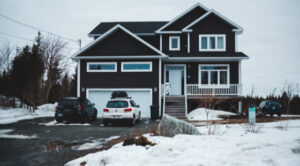How to Prevent Frozen Pipes
Wisconsin is known for having a lot of harsh weather and temperatures that are far below freezing. Unprotected water lines m ay freeze in freezing weather, causing a major mess and expensive damage if they burst. Fortunately our plumber Appleton Wisconsin has offered a few simple steps you may take to safeguard your pipes and avoid a disaster.
ay freeze in freezing weather, causing a major mess and expensive damage if they burst. Fortunately our plumber Appleton Wisconsin has offered a few simple steps you may take to safeguard your pipes and avoid a disaster.
How to Prevent Freezing Water Lines
What causes burst pipes? It’s not the ice in the pipe that causes it to burst, contrary to common opinion; it’s the pressure that grows. Emergency plumber Appleton Wisconsin explains, the pipe will stay intact if the water lines thaw before the pressure grows too high. However, if they remain frozen for an extended period of time, or if they freeze, thaw, and refreeze many times, the unfrozen water in the pipe will finally build up enough pressure to break the line. Thousands of gallons of water might spill out of the pipe before anybody detects the breach resulting in pipe repair Appleton WI.
Walls and Doors Should Be Insulated
Best heating company Sacramento, Gilmore Heating & Air, states that if you have a problem with frequent pipe freezes, try insulating walls and doors, adding weather stripping to doors, and making sure windows are securely sealed. The best long-term solution is to keep the room heated, even if it is more costly.
Pipes Should Be Insulated
Another alternative is to have lining pipes Appleton WI insulate water pipes in unheated areas of your house (e.g., attic, crawlspace, and garage) using foam insulating sleeves before the cold winter arrives. If you don’t have any foam covers, old towels and blankets may be used instead. Keep an eye out for any fire threats.
Heat Tape or a Pipe Heater
A water pipe heater or heat tape, which delivers heat directly to your water pipes to avoid freezing, may be installed (or hired to have it installed by a professional plumber). Most hardware shops will have these goods.
Close your garage door
Be sure to close your garage door on cold days to offer an additional layer of protection from the cold air and wind if water lines run through your garage or the outer wall that connects to it.
Allow Warm Air to Flow Into Tight Spaces
Leave the doors open on the cupboards beneath your sinks and let the water trickle from the faucets when the temperatures are forecast to be very cold. This will enable warm air from the rest of your house to flow around the pipes, preventing them from freezing, and the dripping water will keep pressure in the lines from building up.
Set your thermostat no lower than 55 degrees if you’ll be traveling or away from home for a prolonged amount of time during the chilly months. Shutting off your main water supply and opening each faucet to let the water drain from the pipes is also a good idea.
Pipes Should Be Rerouted
Your supply lines and water pipes may also be rerouted away from unheated portions of your house, such as the garage and outside walls, by a skilled plumber.
If Your Pipes Freeze, What Should You Do?
To begin, turn off the house or business’s main water supply valve.
Then turn on the faucet into which the pipe pours water (if you can determine the location of the frozen pipe). This will release some of the system’s pressure and enable the water to flow more freely when the temperature changes.
Next, if feasible, warm up the room. Open doors to let extra heat in, open heating vents, or switch on a space heater if possible.
You may next use a hair drier or a space heater to attempt to reheat the pipes around the frozen region. Hot clothes placed around the pipe might also be helpful. Always keep an eye on the warming process and follow the manufacturer’s recommendations for optimal usage.
Water spilling from thawing pipes should be avoided near electrical cables and appliances. The combination of water and electricity is very harmful.
What happens if the pipeline bursts?
Shut off your main water supply and contact a plumber if your pipe is leaking or has broken. Water damage may be minimized by turning off the water supply.
We make every effort to offer up-to-date and accurate information, but this material may include mistakes or information that is inappropriate for your circumstance or your equipment. The resources on this website are intended to give general information. Tureks Plumbing Services disclaims any and all responsibility arising from the information given. Always review your equipment’s operating handbook before attempting to repair or alter plumbing, electrical, or other equipment in your home or company, and only do so if you are competent.
Feel free to contact us with any questions, concerns or service requests.

